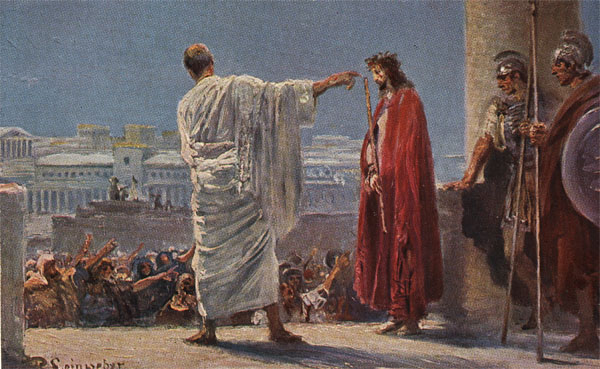Understanding Proverbs 30:33 — “Churning milk produces butter”
Question:
Can you help me understand the meaning of Proverbs 30:32-33 (NIV), which says:
Proverbs 30:32:
“If you play the fool and exalt yourself, or if you plan evil, clap your hand over your mouth.”
Proverbs 30:33:
“For as churning milk produces butter, and as twisting the nose produces blood, so stirring up anger produces strife.”
Answer:
This passage, from the Book of Proverbs, teaches us that every action, whether good or bad, results in a specific outcome. The author uses simple examples to make this clear.
In Proverbs 30:33, we see an analogy with milk and butter. Milk naturally contains butter, but to extract the butter, the milk needs to be churned. This action of churning separates the butter from the milk. The same principle applies to our actions: what’s inside will eventually show, but it often requires a trigger or action to bring it out.
Similarly, blood is inside your nose, but it doesn’t come out unless the nose is disturbed. For example, if you’re punched in the nose, blood will come out. The point is that blood is there, but it needs an external force to make it flow.
The passage applies this idea to anger and conflict. Anger is something that can be inside of us, like butter in milk or blood in the nose. But for anger to turn into conflict, it needs to be stirred up, provoked, or triggered.
The wisdom in Proverbs 30:32 warns that when you feel anger rising, especially when you’re about to say something hurtful, you should immediately “put your hand over your mouth”—meaning, stop talking. If you continue to speak when you’re angry, the result will likely be an argument, fighting, or harm.
In fact, many negative outcomes—such as violence, revenge, or hatred—are often the result of anger that was stirred up and not controlled.
But here’s the good news: the ability to control our emotions, especially anger, comes through being in Christ. The Bible teaches that with God’s help, we can have the strength to control our reactions and choose peace instead of conflict.
If you haven’t trusted in Christ yet, and you’re ready to receive Him today, feel free to reach out to us using the contact information below.
May God bless you.
LORD, GIVE ME STRENGTH ONCE MORE
Judges 16:28 (NKJV):
“Then Samson called to the Lord, saying, ‘O Lord God, remember me, I pray! Strengthen me, I pray, just this once, O God, that I may with one blow take vengeance on the Philistines for my two eyes!’”
Samson’s final prayer was not about regaining his hair it was about avenging the loss of his eyes. This is significant. His request reveals that vision not strength was his greatest loss. Strength can be regained, as seen in this story, but when vision is taken away, a person loses direction, clarity, and purpose. That is why Satan didn’t simply want to weaken Samson he wanted to blind him.
If Samson had to choose between his strength and his sight, he would have chosen to keep his eyes. And that choice reflects something deeply spiritual: vision precedes power. You can be strong, but if you have no spiritual vision, you’ll misuse your strength or serve the wrong purpose.
The Strategy of the Enemy: Weakening Vision by First Attacking Strength
Satan’s strategy with Samson is one he still uses today. He first weakens your spiritual strength your prayer life, your worship, your study of the Word and once you’re spiritually weak, he aims to blind your spiritual eyes. Why? Because without spiritual vision:You can’t discern truth from deceptionYou lose awareness of God’s directionYou no longer see the enemy’s traps
This is exactly what happened to Samson. Once blind, he was made to grind grain in the prison the same strength that once defeated armies was now being used for slavery.
Spiritual Blindness in the New Testament
2 Corinthians 4:4 (NKJV):
“Whose minds the god of this age has blinded, who do not believe, lest the light of the gospel of the glory of Christ, who is the image of God, should shine on them.”
Paul writes that Satan blinds the minds of unbelievers, preventing them from seeing the light of the gospel. But the principle applies even among believers when they drift from God they begin to lose their spiritual sensitivity and vision.
Greater Grace in the New Covenant
Here’s the good news: while Samson’s strength was restored, his sight never returned. But under the New Covenant through Christ, God doesn’t just renew your strength He also restores your spiritual vision.
Ephesians 1:18 (NKJV):
“The eyes of your understanding being enlightened; that you may know what is the hope of His calling, what are the riches of the glory of His inheritance in the saints.”
Paul prays that the eyes of our hearts would be enlightened because to walk in God’s purpose, we need clarity of vision, not just spiritual gifts or strength.
Signs of Spiritual Blindness and Weakness
Ask yourself:Has your prayer life grown cold?Do you find it hard to fast or seek God intentionally?Have you lost the passion to serve God?
These are not just signs of fatigue they can be symptoms of spiritual blindness. When you stop seeing what God is doing or stop feeling His leading, the enemy may have begun to dim your spiritual vision.
A Call to Humility and Renewal
But just as Samson humbled himself before God, so can we. And unlike Samson, we are under a covenant of grace and restoration. If we sincerely seek God, He will not only return our strength He will restore our sight.
Judges 16:28 (NKJV):
“Then Samson called to the Lord, saying, ‘O Lord God, remember me, I pray! Strengthen me, I pray, just this once, O God…’”
This is the prayer of total surrender. Samson knew he couldn’t fix himself. His restoration required divine intervention and so does ours.
Pray and Fast if You Can
If you are in a place where your vision or strength is gone, take time to pray sincerely. If possible, fast. In Scripture, fasting was often a sign of repentance, humility, and deeper pursuit of God’s voice. (See Joel 2:12, Matthew 6:16-18.)
God is not just able to restore what was lost He can give you greater vision than before, a renewed sense of purpose, and the strength to walk it out
May the Lord bless you.
The Effects of Pride in a Person’s Life
What is Pride?
Pride is a sinful attitude that elevates oneself above others and, ultimately, above God. It stems from a heart that relies on personal status, achievement, or appearance instead of God’s grace and truth.
The Bible repeatedly warns against pride because it leads to spiritual blindness, relational breakdowns, and separation from God. A proud person is often boastful, dismissive, unteachable, and self-centered—qualities that are contrary to the character of Christ.
Sources of Pride
1. Wealth
Wealth can tempt people to feel self-sufficient and independent from God. This is known as “the pride of life” in 1 John 2:16 (ESV):
“For all that is in the world—the desires of the flesh and the desires of the eyes and pride of life—is not from the Father but is from the world.”
Those who trust in riches may reject spiritual truth, believing their possessions give them security and value. Jesus warned:
Luke 12:15 (ESV): “Take care, and be on your guard against all covetousness, for one’s life does not consist in the abundance of his possessions.”
Even those chasing wealth may show contempt for God’s Word, equating success with material gain rather than spiritual depth.
2. Education
Worldly knowledge, while valuable, can foster intellectual pride. This occurs when people believe their academic achievements make them superior—even to God’s revelation.
Paul addressed this danger:
1 Corinthians 8:1 (ESV): “…This ‘knowledge’ puffs up, but love builds up.”
Spiritual truth does not depend on human intelligence. The apostles, though mostly uneducated, carried divine wisdom:
Acts 4:13 (ESV): “Now when they saw the boldness of Peter and John, and perceived that they were uneducated, common men, they were astonished. And they recognized that they had been with Jesus.”
3. Talents and Gifts
Natural or spiritual gifts—such as singing, teaching, or leadership—should be used to glorify God and serve others, not to exalt oneself.
Romans 12:3 (ESV): “For by the grace given to me I say to everyone among you not to think of himself more highly than he ought to think…”
Gifts are given by grace, not by merit. Pride in gifts leads to division and spiritual arrogance.
4. Position or Authority
Leadership roles in the church, workplace, or society can lead to pride if misused. Jesus taught that true greatness lies in humility and servanthood:
Mark 10:43–45 (ESV): “…whoever would be great among you must be your servant… For even the Son of Man came not to be served but to serve…”
Leaders must remain teachable and accountable, always remembering their authority is entrusted, not earned.
5. Physical Appearance
Some people become prideful because of their outward beauty or attractiveness, placing excessive value on looks.
Proverbs 31:30 (ESV): “Charm is deceitful, and beauty is vain, but a woman who fears the Lord is to be praised.”
True worth comes from inner godliness, not external appearance.
Consequences of Pride
1. God Opposes the Proud
Pride puts a person in direct opposition to God.
1 Peter 5:5 (ESV): “God opposes the proud but gives grace to the humble.”
James 4:6 (ESV) echoes the same truth.
Without God’s grace, spiritual progress and victory become impossible.
2. Pride Leads to Shame
Pride often ends in humiliation.
Proverbs 11:2 (ESV): “When pride comes, then comes disgrace, but with the humble is wisdom.”
Proud people frequently fall hard because their inflated self-image is not rooted in truth.
3. Pride Destroys Families
Pride can tear apart households when spouses or parents refuse to listen, reconcile, or admit faults.
Proverbs 15:25 (ESV): “The Lord tears down the house of the proud but maintains the widow’s boundaries.”
Humility is essential for peace and unity in relationships.
4. Pride Brings Personal Downfall
Pride does not elevate—it lowers. God brings down those who exalt themselves.
Proverbs 29:23 (ESV): “One’s pride will bring him low, but he who is lowly in spirit will obtain honor.”
5. Pride Leads to Judgment and Eternal Loss
Ultimately, pride leads to spiritual death and separation from God.
Isaiah 2:12,17 (ESV):
“For the Lord of hosts has a day against all that is proud and lofty… And the haughtiness of man shall be humbled, and the lofty pride of men shall be brought low, and the Lord alone will be exalted in that day.”
Those who die in pride without repentance will not inherit eternal life.
Additional Signs of Pride
Pride also expresses itself in arguments, defensiveness, and constant need to be right.
Proverbs 13:10 (ESV): “By insolence comes nothing but strife, but with those who take advice is wisdom.”
Proverbs 21:24 (ESV): “Scoffer is the name of the arrogant, haughty man who acts with arrogant pride.”
How to Guard Against Pride
- Receive salvation through Jesus Christ – True humility begins with recognizing your need for a Savior.
- Be filled with the Holy Spirit – The Spirit produces the fruit of humility and helps you walk in God’s ways.
- Avoid environments that encourage pride – Be intentional about your influences and community.
- Daily choose humility – Follow Christ’s example of servanthood.
Philippians 2:5–8 (ESV): “Have this mind among yourselves, which is yours in Christ Jesus… he humbled himself by becoming obedient to the point of death, even death on a cross.”
May the Lord help us to walk in humility and resist the pride that distances us from His grace.
Let Us Go to Him Outside the Camp Hebrews 13:11–14 (NIV)
Introduction
Greetings in the name of our Lord and Savior Jesus Christ. Today, we reflect on a powerful theme from Scripture—what it truly means to follow Jesus “outside the camp.” This phrase, though symbolic, carries a deep theological message rooted in both the Old and New Testaments. It calls us to sacrifice, humility, and mission.
1. The Pattern in the Old Covenant
In the Old Testament, God established specific laws about sacrifices to atone for sin. In particular, the sin offering (Leviticus 16) involved two distinct locations: inside the camp and outside the camp.
- Inside the Camp: The priest would take the blood of the animal and sprinkle it before the Lord in the sanctuary, symbolizing atonement (Leviticus 16:15–16).
- Outside the Camp: The rest of the animal—the skin, organs, and waste—was burned outside the camp as a means of complete purification (Leviticus 16:27).
This dual-location process emphasized two theological truths:
- Blood atones for sin (Hebrews 9:22).
- Sin must be fully removed and destroyed (symbolized by burning the body outside the camp).
If either part was incomplete, the sacrifice was invalid.
2. Fulfillment in the New Covenant: Christ’s Sacrifice
Jesus Christ fulfilled this Old Testament pattern in His own sacrifice. Hebrews 13:11–12 (NIV) says:
“The high priest carries the blood of animals into the Most Holy Place as a sin offering, but the bodies are burned outside the camp.
And so Jesus also suffered outside the city gate to make the people holy through his own blood.”
- Inside the camp: Jesus, as our High Priest (Hebrews 4:14), offered His blood before God, granting us eternal redemption (Hebrews 9:12).
- Outside the camp: He was crucified outside Jerusalem (John 19:17–20)—a place of public shame and rejection, symbolizing the world’s rejection of Him (Isaiah 53:3).
By combining both elements, Christ fulfilled the complete sacrifice: atoning for sin and bearing the disgrace of sin outside the holy place.
3. Our Call to Follow Him
Hebrews 13:13–14 (NIV) continues:
“Let us, then, go to him outside the camp, bearing the disgrace he bore.
For here we do not have an enduring city, but we are looking for the city that is to come.”
Following Jesus “outside the camp” means:
- Being willing to endure shame, rejection, and discomfort for His sake (Matthew 5:11–12).
- Engaging with the lost, the broken, and even hostile environments to share the Gospel (Luke 19:10).
- Prioritizing eternal things over earthly comfort (Colossians 3:1–2).
Like Jesus, we must leave the comfort of “the camp”—our churches, social bubbles, or respected positions—and meet people where they are. Evangelism isn’t confined to church walls. True discipleship means risk, sacrifice, and deep compassion for others (Romans 12:1).
4. The Example of the Early Church
The early apostles lived this out. They faced persecution, imprisonment, and death for proclaiming Christ:
- Peter and John were arrested and beaten for preaching (Acts 4:18–20; Acts 5:40).
- Stephen was stoned outside the city (Acts 7:58).
- Paul suffered beatings, shipwrecks, and rejection (2 Corinthians 11:23–27).
Why did they endure all this? Because they understood that the Gospel is for everyone—even those far from the “camp” of religious acceptance.
5. Application: What It Means for Us
Going “outside the camp” today may not mean literal martyrdom, but it does require real sacrifice. It might look like:
- Reaching out to people of different beliefs, backgrounds, or lifestyles.
- Giving up status, comfort, or even income to serve Christ’s mission.
- Being misunderstood or mocked for our faith.
Jesus came for the lost (Luke 5:31–32), the despised, and the oppressed. If we are His disciples, we must follow Him—even to hard places.
Conclusion
The call to go “outside the camp” is not just for apostles, missionaries, or pastors. It is for every believer. It’s a call to live sacrificially, love boldly, and share the hope of Christ with a world in need.
May we embrace this calling—not in fear, but in faith. And may God give us grace, boldness, and compassion to follow Jesus wherever He leads.
Shalom.
The Priestly Blessing: A Sacred Commission for God’s Servants
Introduction
In the Old Testament, God instituted a sacred pattern for blessing His people. He gave this command directly to Moses for Aaron the high priest and his sons, laying out the exact words they were to use when blessing the Israelites. This blessing, found in Numbers 6:22–27, is often referred to as the Aaronic or Priestly Blessing.
While originally given to Israel under the Old Covenant, this powerful declaration remains relevant for today’s ministers. Through Christ, all believers are now part of a royal priesthood (1 Peter 2:9), and leaders in the Church have both the authority and responsibility to declare God’s blessing over His people.
Scripture Reading (NIV)
Numbers 6:22–27 (NIV)
22 The Lord said to Moses,
23 “Tell Aaron and his sons, ‘This is how you are to bless the Israelites. Say to them:
24 “‘The Lord bless you and keep you;
25 the Lord make his face shine on you and be gracious to you;
26 the Lord turn his face toward you and give you peace.’
27 “So they will put my name on the Israelites, and I will bless them.”
1. The Nature of Biblical Blessing
In Scripture, a blessing is not a mere wish or greeting, but a prophetic declaration backed by God’s authority. In Hebrew, “bless” (ברך barak) conveys the idea of speaking favor, abundance, and divine enablement into someone’s life. When spoken by a priest under God’s direction, the words are not empty they carry spiritual power.
God Himself confirms this in verse 27:
“So they will put my name on the Israelites, and I will bless them.” This means that God stands behind the words when they are spoken according to His command.
2. The Structure of the Blessing
Each line of the blessing reveals an aspect of God’s relationship with His people:“The Lord bless you and keep you” God provides spiritual and physical well-being, and protection from harm (cf. Psalm 121:7-8).“The Lord make His face shine on you and be gracious to you” God’s favor and grace are signs of His relational closeness. In Scripture, God’s shining face often represents His presence and approval (cf. Psalm 67:1).“The Lord turn His face toward you and give you peace” To lift or turn His face toward someone means to show acceptance, attention, and relational intimacy. The Hebrew word for peace, shalom, speaks not only of the absence of conflict but of wholeness, harmony, and well being in every area of life.
3. The Role of the Priestly Office
God gave this blessing specifically to Aaron and his sons, the Levitical priests, who served as mediators between God and the people. Their role was to represent God to the people, and vice versa (cf. Leviticus 9:22-24). By pronouncing this blessing, they acted under divine authority to transfer God’s grace and protection to the nation.
However, under the New Covenant, Christ has become our Great High Priest (Hebrews 4:14), and He has made us “a kingdom of priests” (Revelation 1:6). This means that today’s pastors, elders, and spiritual leaders also serve as representatives of God’s presence, with the authority to speak blessings in His name (cf. 1 Peter 2:9).
4. The Power of God’s Name
In verse 27, God says:
“So they will put my name on the Israelites, and I will bless them.” In the Hebrew context, a name represents character, authority, and presence. To “put God’s name” on the people is to identify them with His covenant and protection.
This is deeply consistent with New Testament theology: believers are sealed with the name of Jesus (Acts 4:12), baptized into His name (Matthew 28:19), and marked as His own (Ephesians 1:13). Speaking this blessing today is a way of invoking God’s authority over His people.
Be blessed
The Lord Will Fight for You All You Have to Do Is Be Still
Exodus 14:13-14 states
Moses answered the people,
“Do not be afraid. Stand firm and you will see the deliverance the Lord will bring you today. The Egyptians you see today you will never see again.
The Lord will fight for you; you need only to be still.” (NIV)
This powerful declaration comes at a critical moment when the Israelites were trapped between Pharaoh’s pursuing army and the Red Sea. Theologically, this passage reveals God’s sovereignty and faithfulness to His covenant people. It demonstrates that salvation is ultimately God’s work He is the divine warrior who fights on behalf of His people, and human efforts must sometimes yield to His divine intervention.
When the Lord fights for us, it marks the end of fear, grumbling, and despair. The Israelites’ fear and panic reflect human tendencies to forget God’s past faithfulness when facing overwhelming challenges. Despite witnessing God’s miraculous acts such as the plagues that subdued Pharaoh their faith faltered at the crisis.
This reflects a common spiritual struggle: forgetting God’s past deliverance can lead to anxiety and distrust in the present. Like the Israelites, many believers today face trials where they must choose between fear and faith.
Theologically, the call to “be still” (Hebrew: raphah, meaning to let go or cease striving) is an invitation to trust in God’s power and timing. It aligns with Psalm 46:10, “Be still, and know that I am God,” emphasizing rest in God’s sovereignty amid turmoil.
When surrounded by danger and darkness, losing peace and perhaps tempted to despair or speak harsh words, it is not the time to complain or grumble. Instead, believers are called to pray for God’s peace a peace that surpasses understanding (Philippians 4:7) and trust Him to fight their battles.
The promise is that when God fights for us, sorrow melts away, shame disappears, and the urge to sin in speech or deed diminishes. Instead, joy and praise fill our hearts, just as the Israelites sang after crossing the Red Sea.
Exodus 15:1-10 records their triumphant song:
“Then Moses and the Israelites sang this song to the Lord:
‘I will sing to the Lord, for he is highly exalted. Both horse and driver he has hurled into the sea.
The Lord is my strength and my defense; he has become my salvation. He is my God, and I will praise him, my father’s God, and I will exalt him.
The Lord is a warrior; the Lord is his name.
Pharaoh’s chariots and his army he has hurled into the sea. The best of Pharaoh’s officers are drowned in the Red Sea.
The deep waters have covered them; they sank to the depths like a stone.
Your right hand, Lord, was majestic in power. Your right hand, Lord, shattered the enemy.
In the greatness of your majesty you threw down those who opposed you. You unleashed your burning anger; it consumed them like stubble.
By the blast of your nostrils the waters piled up. The surging waters stood up like a wall; the deep waters congealed in the heart of the sea.
The enemy boasted, ‘I will pursue, I will overtake them. I will divide the spoils; I will gorge myself on them. I will draw my sword and my hand will destroy them.’
But you blew with your breath, and the sea covered them. They sank like lead in the mighty waters.’” (NIV)
This song not only celebrates God’s mighty deliverance but also acknowledges Him as a divine warrior who fights evil on behalf of His people. It prefigures the ultimate victory of Christ over sin and death, providing believers with hope and assurance that God is active in their struggles.
Be blessed.
What Does It Really Mean to Curse Someone? (Matthew 5:21–22)
In Matthew 5:21–22, Jesus redefines how we should understand murder—not just as a physical act, but as something that can begin in the heart and be expressed through our words.
Matthew 5:21–22
“You have heard that it was said to the people long ago, ‘You shall not murder, and anyone who murders will be subject to judgment.’ But I tell you that anyone who is angry with a brother or sister will be subject to judgment. Again, anyone who says to a brother or sister, ‘Raca,’ is answerable to the court. And anyone who says, ‘You fool!’ will be in danger of the fire of hell.”
1. Jesus Expands the Law’s Meaning
In the Old Testament, murder was condemned as a direct violation of God’s moral law (Exodus 20:13). The Pharisees focused mainly on the outward act of murder. But Jesus, as the fulfillment of the law (Matthew 5:17), goes deeper—He targets the inner attitude of the heart.
In 1 John 3:15, we read:
“Everyone who hates his brother is a murderer, and you know that no murderer has eternal life abiding in him.”
Jesus’ teaching agrees with this: hatred, anger, and contempt are the roots of murder, and they are just as sinful in God’s eyes.
2. Understanding the Three Degrees of Inner Sin
Jesus identifies three escalating behaviors that stem from the heart:
a. Anger (without cause)
Being angry with a brother or sister (fellow believer or neighbor) is not a minor emotion—it can lead to bitterness, revenge, or hatred. In God’s court, this anger already makes us liable to judgment.
Ephesians 4:31
“Get rid of all bitterness, rage and anger, brawling and slander, along with every form of malice.”
b. “Raca” – Insulting or Demeaning Words
This offense, Jesus says, makes one answerable to the Sanhedrin, the religious council, symbolizing serious spiritual consequences.
James 3:9–10
“With the tongue we praise our Lord and Father, and with it we curse human beings, who have been made in God’s likeness… My brothers and sisters, this should not be.”
c. “You Fool!” – Cursing or Damning Someone
Calling someone a fool (Greek: moros, where we get the word “moron”) implies moral worthlessness or spiritual condemnation. This is not casual name-calling—it’s judging someone as beyond redemption, which is dangerous territory.
Matthew 12:36–37
“But I tell you that everyone will have to give account on the day of judgment for every empty word they have spoken. For by your words you will be acquitted, and by your words you will be condemned.”
Jesus says such speech is deserving of “the fire of hell” (Greek: Gehenna), a metaphor for eternal punishment.
3. The Heart is the Real Issue
What Jesus is teaching is that sin begins in the heart, not just in outward actions. This echoes the prophetic tradition of the Old Testament:
Jeremiah 17:9
“The heart is deceitful above all things, and desperately sick; who can understand it?”
Words and attitudes reflect what’s already in our hearts. So God doesn’t only judge our actions—He judges our motives and intentions.
Proverbs 4:23
“Above all else, guard your heart, for everything you do flows from it.”
4. The Role of the Holy Spirit
To overcome sinful anger, insults, and cursing, we need the transforming power of the Holy Spirit. It’s only through His work in us that we can exhibit self-control, love, patience, and kindness.
Galatians 5:22–23
“But the fruit of the Spirit is love, joy, peace, forbearance, kindness, goodness, faithfulness, gentleness and self-control…”
Trying to control our words and emotions without God will fail. We need a renewed heart and Spirit-filled life.
5. God Has Always Taken Words Seriously
Even in the Old Testament, cursing your parents was a capital offense:
Exodus 21:17
“Whoever curses his father or his mother shall be put to death.”
This shows the weight God places on respectful speech—especially toward others in positions of honor. Our culture may normalize insults, but Scripture does not.
Final Thought:
Jesus reminds us that God sees beyond appearances. He cares about what’s going on in your heart.
So before hatred or harsh words ever turn into violence, God wants to deal with it at the root. That’s why we’re called to repent, forgive, and walk in love.
Ephesians 4:26–27
“In your anger do not sin… Do not let the sun go down while you are still angry, and do not give the devil a foothold.”
Let us ask the Lord daily:
“Create in me a pure heart, O God, and renew a steadfast spirit within me.” (Psalm 51:10)
Shalom
Does the Bible Contradict Itself About John the Baptist Being Elijah?
The Question:
In Matthew 11:14, Jesus says that John the Baptist is Elijah, the one who was to come. Yet in John 1:21, when John is directly asked if he is Elijah, he replies, “I am not.” How can this be? Is Jesus contradicting John the Baptist—or is the Bible contradicting itself?
To answer this, we need to understand the difference between literal identity and spiritual fulfillment in biblical prophecy.
1. What Did Jesus Mean in Matthew 11:14?
“And if you are willing to receive it, he is Elijah who is to come.”
— Matthew 11:14
Jesus wasn’t saying that John the Baptist was literally Elijah reincarnated or returned from heaven. Rather, He meant that John came in the same spirit and prophetic power that characterized Elijah’s ministry. This is a spiritual fulfillment of the prophecy in Malachi 4:5-6, which says:
“Behold, I will send you Elijah the prophet before the coming of the great and dreadful day of the Lord.”
— Malachi 4:5
Jesus is affirming that John the Baptist was the one who fulfilled this role—he prepared the way for the Messiah, just as Elijah was expected to prepare the hearts of the people for the coming of the Lord.
2. What Did John the Baptist Mean in John 1:21?
“And they asked him, ‘What then? Are you Elijah?’ He said, ‘I am not.’”
— John 1:21
Here, John is answering the question literally. He was not Elijah in person. He knew he wasn’t the ancient prophet returned in the flesh. His denial is truthful: he was not Elijah himself, but rather a new prophet with Elijah’s mission.
This is supported by the angel Gabriel’s message to John’s father, Zechariah:
“He will also go before Him in the spirit and power of Elijah… to make ready a people prepared for the Lord.”
— Luke 1:17
This passage makes it clear: John would not be Elijah reincarnated, but he would operate with the same anointing, boldness, and purpose—to turn people’s hearts back to God and prepare the way for Jesus.
3. The Principle of Typology
This apparent contradiction is easily resolved when we understand a biblical principle called typology. In Scripture, a type is a person or event that points to a future reality. Elijah was a type of prophetic forerunner, and John the Baptist was the fulfillment of that role.
- Elijah confronted sin, called for national repentance, and prepared the way for God’s movement.
- John the Baptist did the same in his generation, preparing the way for the arrival of Jesus, the Messiah.
So, Jesus calls John “Elijah” in a prophetic, typological sense, not a literal or physical one.
4. So, Is There a Contradiction?
Not at all. The Bible is consistent when rightly interpreted:
- Jesus spoke spiritually and prophetically.
- John answered literally and personally.
Both statements are true in their own context.
Are You Prepared?
Just as John was sent to prepare people for Jesus’ first coming, God is calling people today to prepare for Christ’s second coming. The signs are clear: the return of the Lord is near. Have you surrendered your life to Him?
The same Spirit that empowered Elijah and John the Baptist is still at work—calling hearts to repentance and readiness.
“Behold, now is the accepted time; behold, now is the day of salvation.”
— 2 Corinthians 6:2
Give your life to Jesus today. There is no better time than now.
May the Lord bless you and give you understanding through His Word.
What Does “All the Prophets and the Law Prophesied Until John” Mean?
Let’s begin by reading the passage in context:
Matthew 11:12–13
“From the days of John the Baptist until now the kingdom of heaven has suffered violence, and the violent take it by force. For all the Prophets and the Law prophesied until John.”
At face value, verse 13 might seem like it means the Law and the Prophets (the Old Testament) predicted the coming of John the Baptist specifically. But that’s not quite what Jesus is saying.
Instead, He is pointing out a transition in redemptive history. The phrase “the Law and the Prophets” is a common Jewish way of referring to the Hebrew Scriptures (see Matthew 5:17, Luke 24:44). These Scriptures governed God’s covenant relationship with Israel, offering His commandments through Moses and speaking His will through prophets.
A Turning Point in God’s Plan
Jesus is identifying John the Baptist as the last in the line of the Old Testament prophets—the final messenger under the old covenant who prepares the way for the Messiah (cf. Isaiah 40:3, Malachi 3:1; 4:5).
Luke 16:16
“The Law and the Prophets were until John; since then the good news of the kingdom of God is preached, and everyone forces his way into it.”
This verse from Luke echoes the same point but with added clarity. John’s appearance marks the end of one era and the beginning of another—the inauguration of the kingdom of God through the preaching of the gospel.
Old Covenant vs. New Covenant
Under the Old Covenant:
- Access to God was mediated through priests, the temple, and sacrifices (see Leviticus).
- The people depended on prophets to hear from God (see 1 Samuel 3:1).
- Forgiveness was temporary and symbolic, tied to ritual and the law (Hebrews 10:1–4).
But under the New Covenant, established through Christ:
- Jesus becomes our High Priest (Hebrews 4:14–16), giving us direct access to God.
- The Holy Spirit now dwells in believers, guiding and convicting us from within (John 14:26; Romans 8:14).
- Forgiveness is complete and eternal through Jesus’ sacrifice (Hebrews 10:10–14).
Hebrews 1:1–2
“Long ago, at many times and in many ways, God spoke to our fathers by the prophets, but in these last days he has spoken to us by his Son…”
So when Jesus says the Law and the Prophets “prophesied until John,” He is marking the end of that former way of God communicating with His people. From John onward, the good news of the kingdom is preached—not just to Israel but to all who would believe.
“The Kingdom Suffers Violence” – What Does That Mean?
Matthew 11:12, “the kingdom of heaven suffers violence, and the violent take it by force,” is complex, but here’s a balanced interpretation:
- “Suffers violence” likely refers to the spiritual intensity and resistance surrounding the arrival of God’s kingdom. The gospel brings confrontation with the powers of darkness and the sinfulness of man.
- “The violent take it by force” points to those who respond to the gospel with passionate, determined faith, pushing past obstacles to lay hold of the kingdom (see Luke 13:24 – “Strive to enter…”).
In other words, Jesus is highlighting the urgency and spiritual effort it takes to respond to the gospel. This doesn’t mean salvation is earned by works—but that entering God’s kingdom requires serious commitment, turning from sin, and trusting Christ fully.
What It Means for Us Today
We no longer need a prophet or priest to bring us near to God. Through Jesus Christ, the way has been opened:
Hebrews 10:19–22
“Since we have confidence to enter the holy places by the blood of Jesus… let us draw near with a true heart in full assurance of faith…”
The time of waiting for God’s Word through a prophet is over. Today, every believer can walk in fellowship with God, guided by Scripture and the Holy Spirit.
Let us then press in with all our hearts. The kingdom of God is open—but we must pursue it with faith, repentance, and spiritual hunger.
James 4:8
“Draw near to God, and he will draw near to you.”
May the Lord help us to seek His kingdom earnestly and live as faithful citizens in it.
Did Jesus Answer Pilate or Not? Does the Bible Contradict Itself?
Question: Does the Bible contradict itself regarding whether Jesus answered Pilate? In John 18:33-34, it says He did answer, but in Matthew 27:13-14, it says He didn’t answer at all. Which one is correct?
Answer: First of all, it’s crucial to understand that the Bible does not contradict itself. The apparent contradictions often come from our own interpretations or misunderstandings. The Bible is a perfect book, inspired by the Holy Spirit (2 Timothy 3:16), and therefore it contains no errors.
Let’s examine the situation more closely by looking at both passages:
John 18:33-37
In this account, when Pilate asks Jesus if He is the King of the Jews, Jesus answers him directly:
John 18:33-34
“Pilate then went back inside the palace, summoned Jesus and asked him, ‘Are you the king of the Jews?’
‘Is that your own idea,’ Jesus asked, ‘or did others talk to you about me?’”
Jesus responds to Pilate, confirming His kingship, but He also adds an important clarification: His kingdom is not of this world. Jesus’ response here shows His divine purpose—His kingdom is not of this earthly realm, but of the spiritual realm (John 18:36). This is a key theological point, revealing that Jesus’ mission is not to establish a political kingdom, but a spiritual one that transcends the world’s systems.
John 18:36
“Jesus said, ‘My kingdom is not of this world. If it were, my servants would fight to prevent my arrest by the Jewish leaders. But now my kingdom is from another place.’”
Matthew 27:11-14
Here, when Jesus is questioned by Pilate, the situation seems different. Pilate asks if He is the King of the Jews, and Jesus responds briefly, “It is as you say.” However, when the chief priests and elders accuse Him, He remains silent.
Matthew 27:12-14
“When he was accused by the chief priests and the elders, he gave no answer.
Then Pilate asked him, ‘Don’t you hear the testimony they are bringing against you?’
But Jesus made no reply, not even to a single charge—to the great amazement of the governor.”
Jesus’ silence before the chief priests and elders holds deep theological significance. In the Old Testament, the silence of the Messiah before His accusers was prophesied (Isaiah 53:7), and Jesus’ silence fulfilled that prophecy. By remaining silent, Jesus shows His complete submission to God’s will and His willingness to bear the weight of the accusations and the coming suffering without retaliation. This echoes the doctrine of the atonement, where Jesus takes upon Himself the sins of the world, willingly suffering for humanity’s sake (Romans 5:8).
Is There a Contradiction?
No, the Bible is not contradicting itself. Both passages describe the same event, but in different contexts. Let’s break it down:
- First Context (Matthew 27:11):
When Jesus is first brought before Pilate, Pilate asks Jesus directly, “Are You the King of the Jews?” Jesus answers briefly, “It is as you say” (meaning, yes, I am). This shows Jesus’ acceptance of the title but also His subtle statement that His kingship transcends earthly expectations. - Second Context (Matthew 27:12): When the chief priests and elders accuse Jesus of various crimes (such as claiming to be the Son of God), Jesus remains silent. These charges were not genuine inquiries for truth, but were intended to provoke, accuse, and justify His crucifixion. Jesus’ silence here emphasizes His role as the sinless Lamb of God (1 Peter 1:19), who, without defense, took on the sins of the world.
- Third Context (Matthew 27:13-14):
Pilate, puzzled by Jesus’ silence, presses Him further, asking, “Don’t You hear how many things they testify against You?” Yet Jesus does not answer. This is not because He is unable to respond, but because His silence serves as a testimony to His innocence. Jesus knew that this trial was part of the divine plan for salvation, fulfilling His role as the Suffering Servant (Isaiah 53:3-5). - Fourth Context (John 18:33-37):
Finally, Pilate privately asks Jesus again, “Are You the King of the Jews?” This time, Jesus answers directly, explaining the nature of His kingdom. This conversation between Jesus and Pilate shows that Jesus is in control, calmly explaining the truth of His mission to the Roman governor, while still fulfilling the divine plan for His death.
Why Didn’t Jesus Answer the Accusations?
Jesus didn’t answer the accusations of the religious leaders because they weren’t truly seeking the truth. Their goal was not to understand but to trap Him. This aligns with the doctrine of the sovereignty of God—Jesus knew that the leaders were acting out of malice and evil intent. He chose silence because their hearts were hardened and their questions were not for the sake of understanding, but for condemnation.
In contrast, when Pilate asked Him questions that were more genuinely seeking understanding, Jesus responded. This shows us that there are moments when silence is a powerful choice, especially when engaging with those who are not seeking truth but only seeking to cause harm.
What Can We Learn from This?
From this, we learn that sometimes, staying silent in the face of accusations or provocations is the wisest choice. Jesus answered the questions that sought truth, but He didn’t engage with those who were trying to manipulate the situation or create conflict. This teaches us to discern when to speak and when to remain silent.
There are times when responding to certain questions or arguments only gives more fuel to the fire. If someone is not genuinely seeking the truth but only trying to create discord, silence may be the best response.
Titus 3:9-10
“But avoid foolish controversies and genealogies and arguments and quarrels about the law, because these are unprofitable and useless.
Warn a divisive person once, and then warn them a second time. After that, have nothing to do with them.”
Jesus teaches us that sometimes we must remain silent, especially when those asking the questions are not looking for truth but for an opportunity to argue or cause harm.
God bless you.









